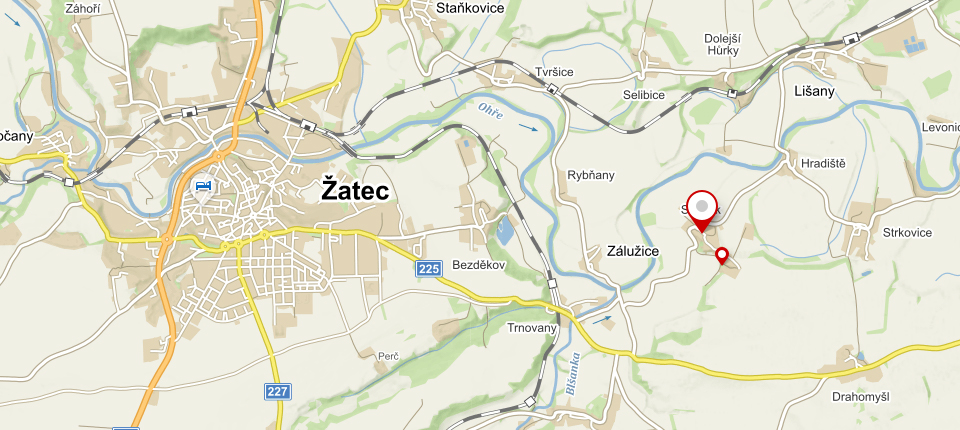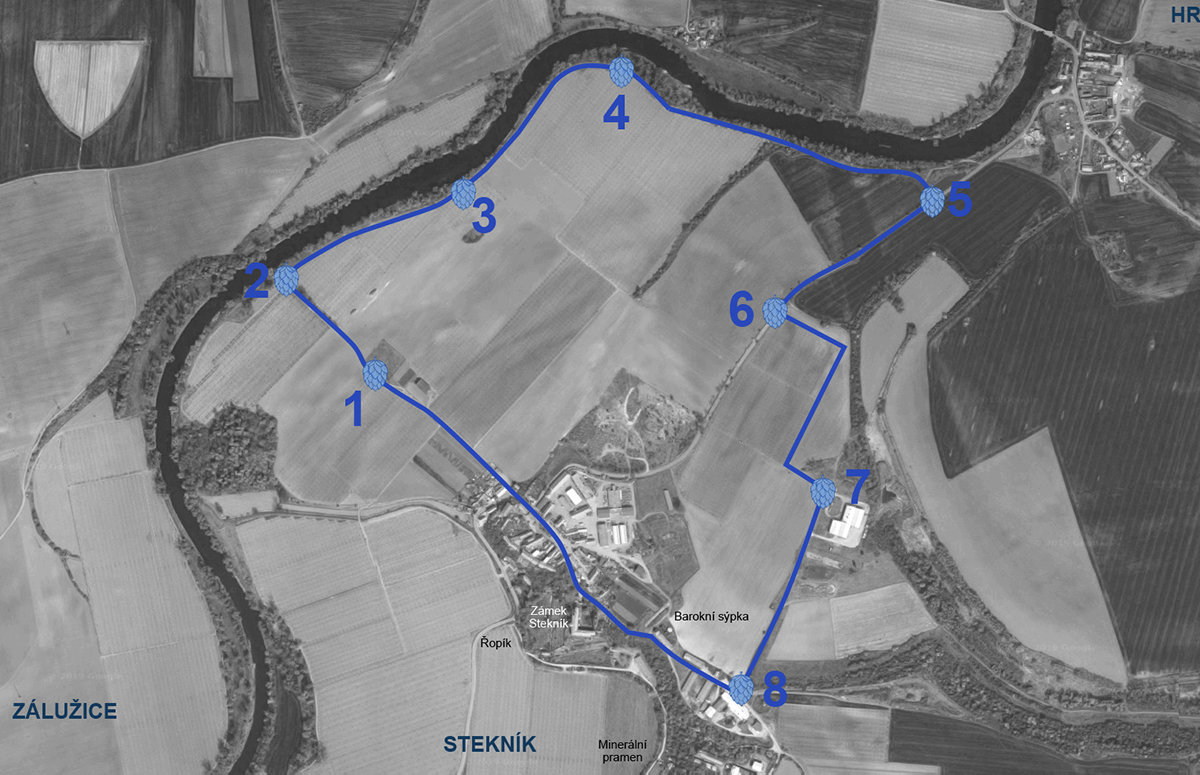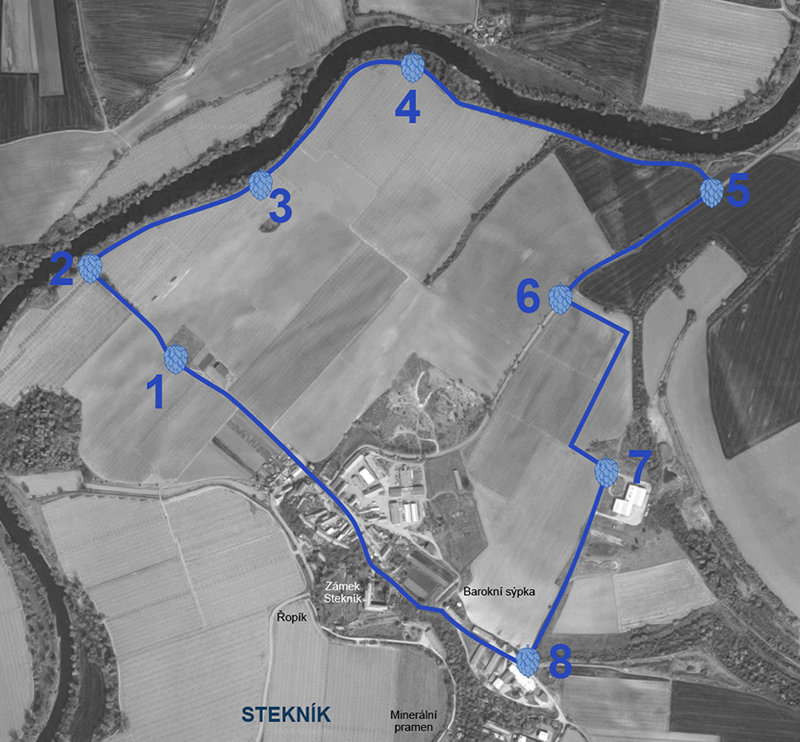HOP TRAIL POINTS
8. Hops and beer, inseparable allies
Hops have been grown in the Czech Republic since the 8th century. Žatec has gradually become the main area of its cultivation – thanks to its suitable climate, soils and local varieties “Saaz varieties” interesting for its lower content of bitter substances so the local beer is not unpleasantly bitter.
8. Hops and beer, inseparable allies
Cultured hops grown for beer production during the 12th – 14th century becomes an important crop of the lands of the Czech Crown. In 1265, Přemysl Otakar The Second granted “City privileges” to Žatec. The Žatec region had both climatic conditions and natural environment, as well as convenient sales opportunities for cities, export and trade. Thus the royal town of Žatec quickly become the center of hop growing and brewing.
An important milestone for the future development of Czech hop growing was the complete abolition of the corvée and thus the villein and suzerain power over the serfs. Thus, in 1848 they became subjects of lawful citizens and landowners and had the opportunity to grow hops on their land. The share of so-called village hops in the Žatec region gradually increased and in the 1860s reached 80% of the area of all hop gardens in our country. This development was due to the fact that hops were one of the most typical small-scale crop production.
Combing the hops took place directly on the hop gardens, and the number of hop pickers, which in relatively short period of 10-14 days, when the amount of lupulin culminates in the plant, harvested the hops. To fill the necessary number of pickers was beyond the power of the locals, so seasonal workers were coming down or were brought from the surrounding areas.
The Žatec town was lively and economically important center of northwestern Bohemia at the end of the 19th century. 161 companies were registered in Žatec, that dealt with the hop sales and 53 packing plants and hop warehouses, two breweries thrived there – the Dreher’s export brewery, from 1898, was the most modern in the Austro-Hungarian Empire and brewed beer until 1946.
During the World War II there was a substantial reduction in the area of hops. Hop growing, as well as the entire agriculture and national economy, was adapted to the needs of the German Empire. In the border area, the hop growing areas were linked to the German Empire organizational structures. So-called protectorate hops were not allowed to be imported into the Greater German Empire. The area of hop gardens in the Žatec region from 1938 to 1945 dropped by almost a quarter from 8,756 to 6,682 hectares.
Shortly after the events of February 1948, a decree of Ministry of Agriculture proclaimed a national administration to the hop institution. In 1950s, larger agricultural plants, unified agricultural cooperatives and state farm’s were created under strong power pressure.
Even the hop growing suffered from a persistent labor shortage, insufficient equipment with suitable machinery, fertilizers and substances for hop protection. After a long period of organizational confusion, the national company Chmelařství was established in 1960. At the beginning of the 1970s, a production line for granulated hops was put into operation and installed in the original packing plant at Chmelařská Square. The company headquarters and the largest hop packing plant were
newly opened in Mostecká Street. Twenty years later, a new line for granulated hop was built, and since 2000, warehouses in this building have been reconstructed to air-conditioned.
Remarks:
It is stated that in the years shortly before the First World War, 80-140 thousand seasonal workers – pickers – were needed to harvest the hop in Žatec.
Have you not visited the hop path yet?
So you can take a stroll and read interesting facts about hops and the place.
You are entering the grounds of the Hop Institute, where agricultural machinery moves all year around. Take extra care! Enter at your own risk.


OPERATOR OF HOP TRAIL
 | Hop Research Institute Co., LTD Kadanska 2525 438 01 Zatec |
 | www.chizatec.cz |
 | +420 415 732 111 |
 | info@chizatec.cz |
HOP TRAIL | |
 | Stekník, 438 01 Žatec |
DOČESNÁ - DEGUSTACE PIV
Beer tasting during the beer festival at the Hop Research Institute in Žatec.
-traditional event for invited experts and laics at the Hop Research Institute
-accompanying program at the beer festival













